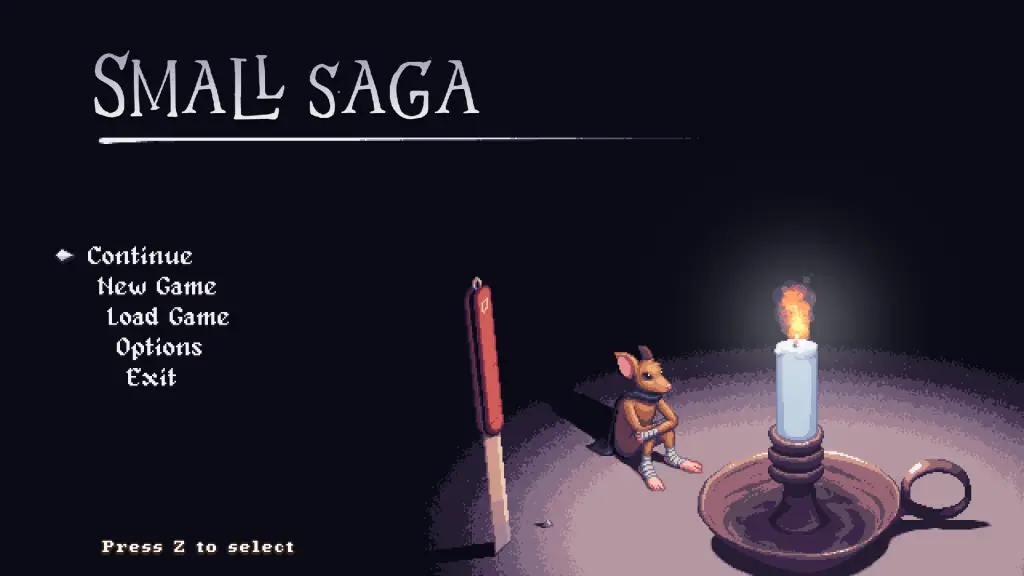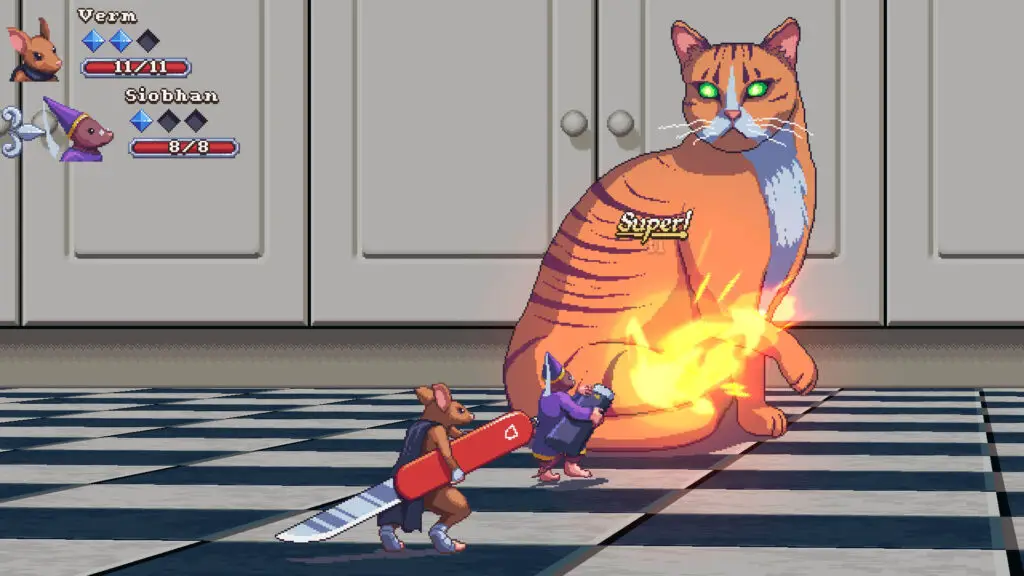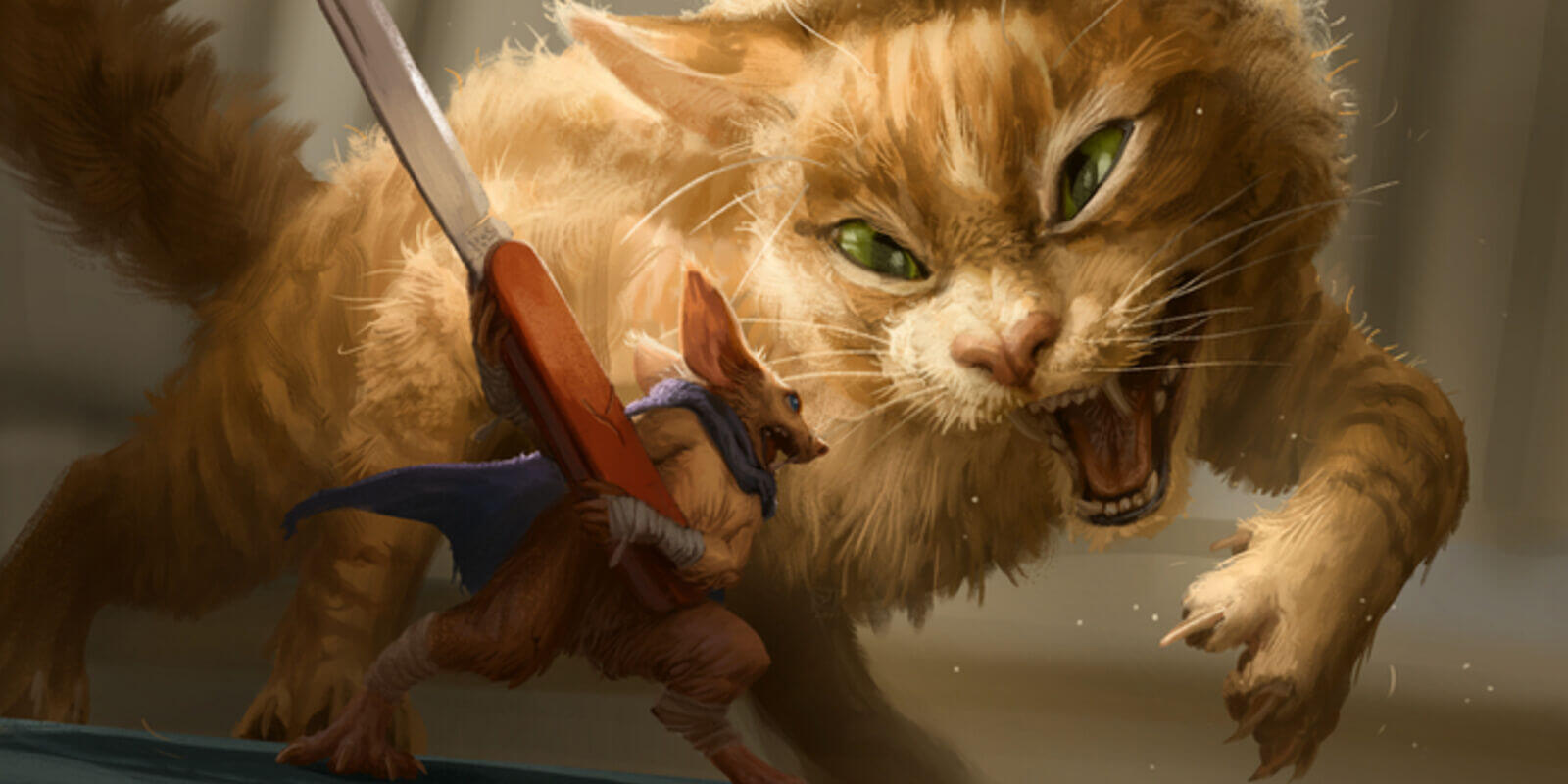Small Saga poses as a JRPG set in a world where rats and rodents form kingdoms and societies built off the leftover items from the “gods” or humans who occupy the world above. The game sets you off on a tale of revenge against the one who stole your tale, “The Yellow God”, but is the journey worth the cost?
My Small Saga Preview introduces the following:

Charm and presentation
The game opens with two brothers trying to make their way to a supermarket, referred to as heaven, to collect food for their village. The first 5 minutes contain a somewhat goofy showdown between some goons who mess up their intro speech in a quirky, funny RPG sense, and then pivots to “The Yellow God”, and delivers a violent tragedy involving the loss of your tail and brother.
Small Saga immediately establishes the stakes that battles are life and death moments for these cuddly creatures. And yet, the game is still able to maintain a goofy tone throughout its course. The main character essentially becomes Guts from Berserk, who wields an oversized pocket knife and ends up saddled with a very sad and clumsy mole who constantly lands face first whenever moving.
The overworld is navigated by a jazzy carrier pigeon who wears a nifty little hat who owes you a favor after he locks himself in a trash bin trying to get some food. The whole game carries this aloof, quirky RPG style similar to something like Earthbound or Undertale, balanced out between darker tones in certain scenes. I also love how players save their game by praying to statues of famous rodents of yore, including one being to the famous architect, Vishruvius. (like the Roman architect, Vitruvius, but a shru!)

Combat System
Aside from its quirky sensibilities, what else does Small Saga offer? It’s a traditional JRPG experience, filled with staples such as party management, including equipment and skills trees, and turn-based combat. When characters level up, players can assign points freely to any path, and there’s no penalty for reassigning points at any moment when outside of combat, leaving room for experimentation, but I didn’t get far enough to see how much these features truly augmented my party members.
Most of the points on the tech tree are stat upgrades, having increased health or damage, and completing a specific path, which can unlock passives or abilities, such as when you take damage and gain more stamina points. Combat also relies on these stamina points, with some abilities taking more than one to use and regenerate one at a time between rounds, unless augmented by a skill tree point or equipment, of course.
This means you could use powerful abilities but at a high stamina costs, weaker abilities with little stamina costs, or use no points and defend yourself for a turn, boosting your defense which lowers how much damage you can receive. There are also different types of damage, such as special, pierce, slash, and crush, that are more effective versus certain types of enemies, but they rarely came into use during my time with the demo.
The demo also does not show off the full capabilities of what the combat is capable of. It wasn’t until the final fight on the demo, one hour in, that I really had to think during combat, where every encounter before is limited to just one or two abilities, so there’s no need to think about combat other than click the high damage ability.
But that final fight is so charming, where I’m utilizing a broody rat warrior with a pocket knife, a wizard wielding a lighter as a pyromancer, and a bard who plays with a carved pencil. It’s the charm that sells the combat for me, which can be seen as simplistic for those looking for a deeper challenge.

Final thoughts
My time with Small Saga was charming and whimsical, with excellent animations and pixel art to help sell its eccentric world. A world populated by rodent politics, a rich internal lore about the makeup of the human world, and a singing octopus boss fight. So far, my only real complaint is navigating some of the levels with overlapping pipes. It feels like I’m navigating some non-euclidean geometry without a sense of depth to what I’m walking over.
There are also some smaller gripes, such as having to rebind keys if you don’t want “Z, X, or C” to be the default for selecting or going back from menus and navigating going straight in the isometric spectric feels too stiff when navigating corridors. But aside from those little nags, I was still excited to play to see what wacky things the game would throw out at me next, such as a spider hiding in a chest like a mimic.
Overall Small Saga is a strong recommendation, and I look forward to playing the whole release. Small Saga is out now and is currently on sale for 17.99 on Steam till November 23rd when it’ll be its regular price of 19.99.







